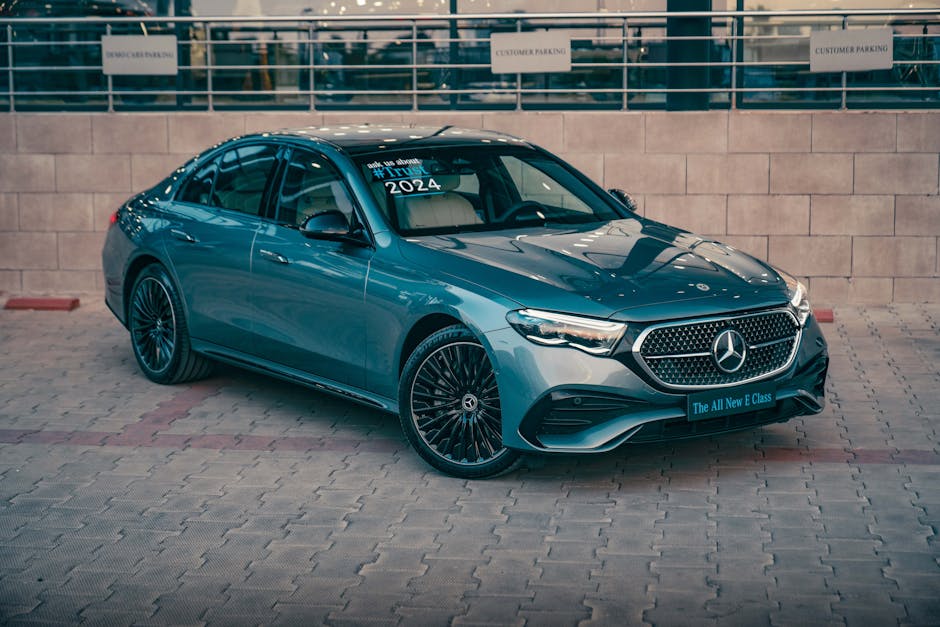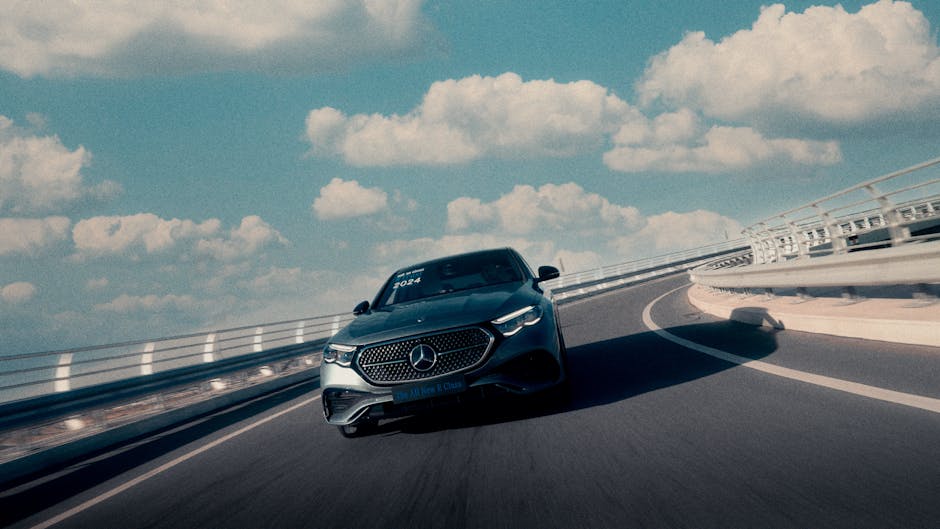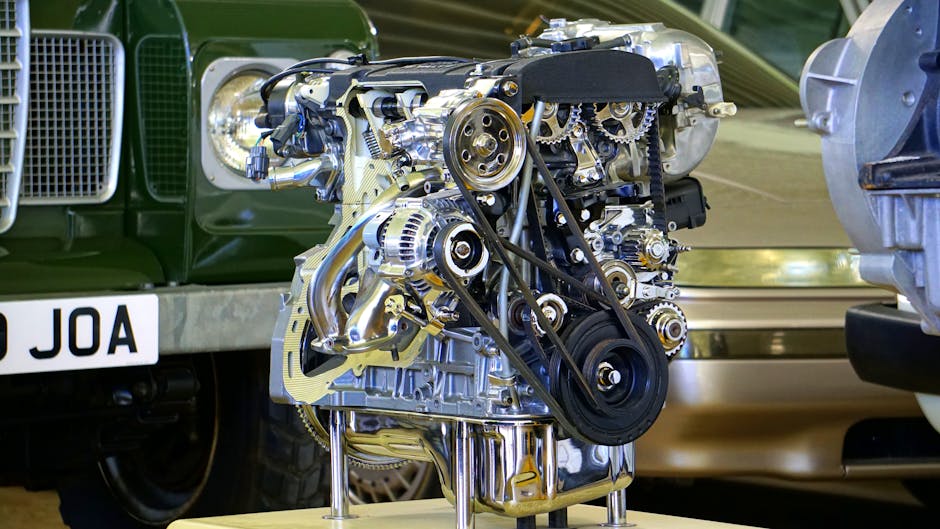New Car Launches 2025: A Glimpse into the Future of Automotive Innovation
As we look ahead to the year 2025, the automotive industry is abuzz with excitement over the upcoming new car launches. From cutting-edge electric vehicles to autonomous driving technologies, the future of transportation is being shaped by these groundbreaking innovations. In this comprehensive guide, we will delve into the world of new car launches in 2024, exploring the latest trends, technologies, and advancements that are driving the automotive landscape forward.
The Rise of Electric Vehicles

By Mohit Hambiria via Pexels
Electric vehicles (EVs) have been steadily gaining popularity in recent years, thanks to advancements in battery technology and a growing focus on sustainability. In 2024, we can expect to see a slew of new EV models hitting the market, offering consumers a wide range of options to choose from. Companies like Tesla, Rivian, and Lucid Motors are leading the charge with their innovative electric cars that boast impressive range, performance, and features.
One of the most anticipated new car launches in 2024 is the Tesla Model 4, the latest addition to Tesla’s lineup of electric vehicles. With rumors of a sleek design, advanced self-driving capabilities, and a competitive price point, the Model 4 is expected to be a game-changer in the EV market. Other automakers are also stepping up their EV game, with Ford, GM, and Volkswagen all unveiling new electric models that promise to deliver on both performance and sustainability.
The Future of Autonomous Driving

By Esmihel Muhammed via Pexels
Autonomous driving technology is another key focus for new car launches in 2024. With advancements in artificial intelligence and sensor technology, automakers are pushing the boundaries of what is possible in terms of self-driving cars. Companies like Waymo, Cruise, and Tesla are leading the way in developing autonomous vehicles that promise to revolutionize the way we think about transportation.
In 2024, we can expect to see more autonomous features being integrated into new car models, from advanced driver-assistance systems to fully autonomous driving capabilities. The goal is to create a safer, more efficient driving experience for consumers, while also reducing traffic congestion and emissions. While there are still challenges to overcome, such as regulatory hurdles and public acceptance, the future of autonomous driving is looking brighter than ever.
Sustainability and Eco-Friendly Features
With a growing emphasis on sustainability and environmental consciousness, automakers are incorporating more eco-friendly features into their new car designs. In 2024, we can expect to see an increase in electric and hybrid models, as well as innovations in materials and manufacturing processes that reduce the carbon footprint of vehicles. Companies like Toyota, Honda, and BMW are leading the way in developing sustainable transportation solutions that prioritize both performance and environmental impact.
One exciting trend to watch for in 2025 is the use of recycled materials in car manufacturing. Companies are exploring ways to incorporate recycled plastics, metals, and textiles into their vehicles, reducing waste and lowering the environmental impact of production. From interior upholstery made from recycled water bottles to lightweight carbon fiber components derived from renewable sources, the future of automotive design is looking greener than ever.
Connected Cars and Smart Technology

By Esmihel Muhammed via Pexels
Another key trend in new car launches for 2025 is the integration of connected car technology and smart features. With advancements in 5G connectivity, artificial intelligence, and Internet of Things (IoT) devices, vehicles are becoming more connected and intelligent than ever before. From in-car infotainment systems to advanced safety features, automakers are embracing technology to enhance the driving experience for consumers.
In 2025, we can expect to see new car models equipped with features like advanced driver-assistance systems, voice-activated controls, and seamless connectivity to smartphones and other devices. Companies like Mercedes-Benz, Audi, and BMW are leading the way in developing connected car solutions that offer a seamless and intuitive user experience. With the rise of smart cities and connected infrastructure, the future of transportation is becoming increasingly digital and interconnected.
Challenges and Controversies
While the future of new car launches in 2025 is filled with promise and potential, there are also challenges and controversies that must be addressed. One of the biggest concerns facing the automotive industry is the impact of new technologies on jobs and employment. As automation and AI become more prevalent in car manufacturing and driving, there are fears of job displacement and economic disruption.
Another contentious issue is the safety and security of autonomous vehicles. While self-driving cars hold the promise of reducing accidents and improving road safety, there are still concerns about the reliability of these systems and the potential for hacking and cyber attacks. Automakers and regulators are working to address these issues, but there is still much work to be done to ensure the safe and responsible deployment of autonomous driving technology.

By Mike Bird via Pexels
Expert Opinions
According to automotive industry experts, the new car launches in 2025 represent a significant step forward in the evolution of transportation. With advancements in electric vehicles, autonomous driving, sustainability, and connected car technology, the automotive landscape is undergoing a radical transformation. Experts predict that these innovations will not only reshape the way we think about cars but also have far-reaching implications for society as a whole.
One expert, Dr. Sarah Johnson, a leading researcher in automotive technology, believes that the rise of electric vehicles will have a profound impact on reducing greenhouse gas emissions and combating climate change. She predicts that by 2025, EVs will make up a significant portion of new car sales, signaling a shift towards a more sustainable and environmentally conscious transportation system.
Common Misconceptions
One common misconception surrounding new car launches in 2025 is that electric vehicles are still too expensive and impractical for the average consumer. While EVs have historically been more costly than traditional gas-powered cars, prices are steadily coming down as battery technology improves and economies of scale are achieved. With government incentives and rebates available for electric vehicle purchases, owning an EV is becoming more accessible to a wider range of consumers.
Another misconception is that autonomous vehicles are not safe or reliable enough for widespread adoption. While there have been high-profile incidents involving self-driving cars, the vast majority of accidents are caused by human error. Autonomous vehicles have the potential to greatly reduce the number of accidents on the road, as they are not prone to distractions, fatigue, or impaired judgment like human drivers. As the technology continues to improve and regulators establish clear guidelines for deployment, the safety of autonomous vehicles will only continue to increase.
Comparative Analysis
When comparing the new car launches in 2025 to previous years, it is clear that the automotive industry is undergoing a period of rapid change and innovation. The focus on electric vehicles, autonomous driving, sustainability, and smart technology represents a shift towards a more connected, intelligent, and sustainable transportation system. Companies that are able to adapt and innovate in this changing landscape will be well-positioned to succeed in the future.
Compared to the past, the new car launches in 2025 are characterized by a greater emphasis on sustainability and environmental consciousness. Automakers are investing in eco-friendly materials, manufacturing processes, and technologies that reduce the carbon footprint of vehicles and promote a more sustainable approach to transportation. This shift towards sustainability reflects changing consumer preferences and a growing awareness of the environmental impact of traditional gasoline-powered vehicles.
FAQs
What are the key trends in new car launches for 2025?
The key trends in new car launches for 2025 include electric vehicles, autonomous driving technology, sustainability, and connected car features. These innovations are shaping the future of transportation and revolutionizing the automotive industry.
How will new car launches in 2025 impact the environment?
New car launches in 2025 are expected to have a positive impact on the environment, thanks to the rise of electric vehicles, sustainable materials, and eco-friendly manufacturing processes. By reducing emissions and promoting sustainability, these new car models are helping to combat climate change and promote a greener future.
To Wrap Things Up
In conclusion, the new car launches in 2025 are poised to transform the automotive industry and redefine the way we think about transportation. With advancements in electric vehicles, autonomous driving, sustainability, and connected car technology, the future of mobility is looking brighter than ever. As we look ahead to 2025, it is clear that innovation and progress are driving the automotive landscape forward, paving the way for a more sustainable, efficient, and intelligent transportation system.




